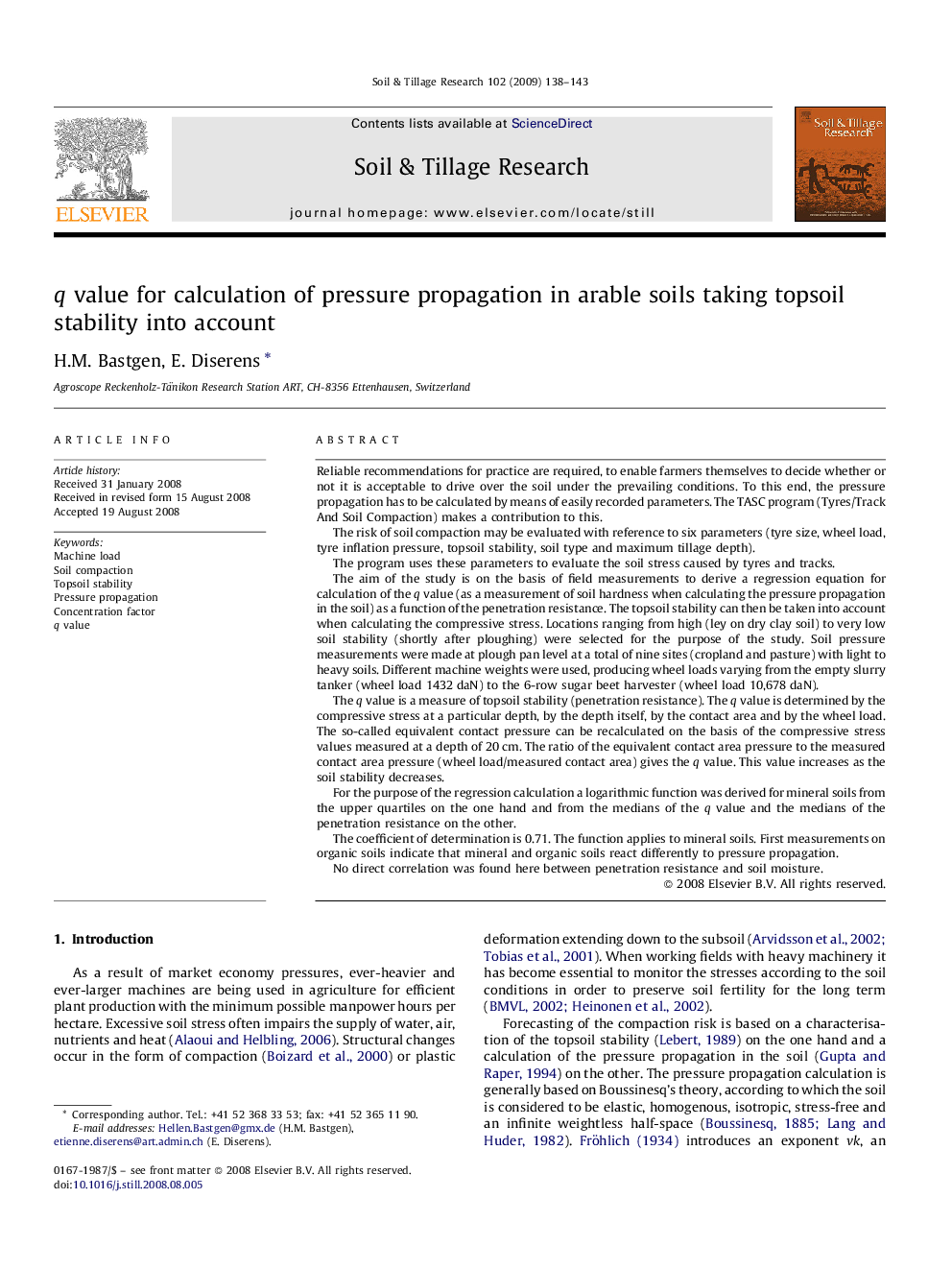| کد مقاله | کد نشریه | سال انتشار | مقاله انگلیسی | نسخه تمام متن |
|---|---|---|---|---|
| 306452 | 513095 | 2009 | 6 صفحه PDF | دانلود رایگان |

Reliable recommendations for practice are required, to enable farmers themselves to decide whether or not it is acceptable to drive over the soil under the prevailing conditions. To this end, the pressure propagation has to be calculated by means of easily recorded parameters. The TASC program (Tyres/Track And Soil Compaction) makes a contribution to this.The risk of soil compaction may be evaluated with reference to six parameters (tyre size, wheel load, tyre inflation pressure, topsoil stability, soil type and maximum tillage depth).The program uses these parameters to evaluate the soil stress caused by tyres and tracks.The aim of the study is on the basis of field measurements to derive a regression equation for calculation of the q value (as a measurement of soil hardness when calculating the pressure propagation in the soil) as a function of the penetration resistance. The topsoil stability can then be taken into account when calculating the compressive stress. Locations ranging from high (ley on dry clay soil) to very low soil stability (shortly after ploughing) were selected for the purpose of the study. Soil pressure measurements were made at plough pan level at a total of nine sites (cropland and pasture) with light to heavy soils. Different machine weights were used, producing wheel loads varying from the empty slurry tanker (wheel load 1432 daN) to the 6-row sugar beet harvester (wheel load 10,678 daN).The q value is a measure of topsoil stability (penetration resistance). The q value is determined by the compressive stress at a particular depth, by the depth itself, by the contact area and by the wheel load. The so-called equivalent contact pressure can be recalculated on the basis of the compressive stress values measured at a depth of 20 cm. The ratio of the equivalent contact area pressure to the measured contact area pressure (wheel load/measured contact area) gives the q value. This value increases as the soil stability decreases.For the purpose of the regression calculation a logarithmic function was derived for mineral soils from the upper quartiles on the one hand and from the medians of the q value and the medians of the penetration resistance on the other.The coefficient of determination is 0.71. The function applies to mineral soils. First measurements on organic soils indicate that mineral and organic soils react differently to pressure propagation.No direct correlation was found here between penetration resistance and soil moisture.
Journal: Soil and Tillage Research - Volume 102, Issue 1, January 2009, Pages 138–143